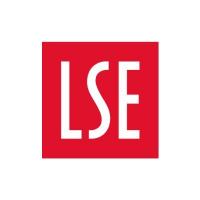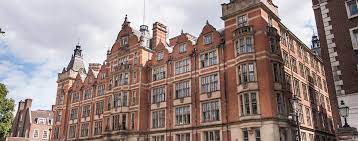
London School of Economics
London , London , United Kingdom
- Founded: 1895
- Establishment: HE Institution / College
- Type: Public
- Total Students: 12050+
London School of Economics
LSE first opened its doors in 1895 in three rooms in 9 John Adam Street, close to the Strand, London. During its first year 300 students enrolled for its courses including economics, statistics and political science. In 1896 the School moved to larger premises at 10 Adelphi Terrace, overlooking the Thames.
LSE was the brain child of Sidney Webb (1859-1947) supported by his wife, the social investigator Beatrice Webb (1858-1943), the political scientist Graham Wallas (1858-1932) and the writer G Bernard Shaw (1856-1950). All four were members of the Fabian Society. An economic historian, William Hewins (1865-1931) was appointed the first Director. The first prospectus lists eleven lecturers.
“The special aim of the School will be, from the first, the study and investigation of the concrete facts of industrial life and the actual working of economic and political relations as they exist or have existed, in the United Kingdom and in foreign countries.” LSE Prospectus, 1895
From the start, the School was open to women and men and welcomed students from overseas. The School was committed to providing its students with “scientific training in methods of investigation and research” and resources for research, and in 1896 it founded the Library, known from 1928 as the British Library of Political and Economic Science.
The first prospectus lists the subjects taught as economics, statistics, commerce, commercial geography, commercial history, commercial and industrial law, currency and banking, taxation and finance, and political science. Classes were held in the morning and evening for working students.
Important Facts
LSE offers a unique opportunity to study the social sciences in a university institution with a worldwide academic reputation, while enjoying the cultural, social and recreational facilities of one of the world's greatest capital cities. You may wish to also explore the Life at LSE pages.
The heart of London
The character of LSE is inseparable from its location. Situated in the heart of central London, the School is located in one of the most cosmopolitan cities in the world. Only a short distance from Europe's financial, legal and cultural centres, LSE stands at the crossroads of international debate, fundamental to our identity as an outward-looking institution with active involvement in UK and world affairs.
A world centre of research and teaching
Our research informs and constantly invigorates our teaching. Graduate students also play a valued and important role in the School's contribution to scholarship, through the research they undertake during their studies. LSE supports the research of its staff through academic departments and institutes, and also through a range of interdisciplinary research centres. Some 97 per cent of LSE academics are actively engaged in research. Staff are regularly sought out as advisers, consultants and commentators, becoming involved in the practical impact of the subjects they teach and research. Many past and present members of staff act as expert advisers to political parties, the Civil Service and policy pressure groups. For instance, Professor David Metcalf was chair of the independent UK Migration Advisory Committee from 2007 to 2016 and has been named as the first Director of Labour Market Enforcement, Emeritus Professor Lord Desai is a regular speaker in House of Lords debates and Emeritus Professor Lord Wallace was a government whip in the coalition government, and Emeritus Professor Lord Layard, founder of the Centre for Economic Performance, is a prominent expert on happiness and well being.
Research quality
The Research Excellence Framework (formerly the Research Assessment Exercise - RAE) is a UK-wide assessment of research excellence at universities undertaken by the Higher Education Funding Councils every five to seven years. Results from the 2014 REF confirmed LSE's position as a world-leading research university, with the School topping or coming close to the top of a number of rankings of research excellence.
Ranking / Awards
In the QS World and Subject Rankings 2021, LSE was ranked 1st in Europe and 2nd in the world for social science and management subjects.
Features
-
Ranking: 52

-
Ranking: 50

- Type of Accommodation: On Campus
Financials
Marketing Material
Contact Information
- Houghton Street London WC2A 2AE UK
- To know more contact PSA toll free number 18002585772
Programs Offered
BSc Accounting and Finance
- Length 03 Year
- Total Tuition Fee 81576 GBP
- Application Fee 95 GBP
- Average processing time 20 days
BSc Economics
- Length 03 Year
- Total Tuition Fee 79776 GBP
- Application Fee 95 GBP
- Average processing time 20 days
BSc Management
- Length 03 Year
- Total Tuition Fee 107100 GBP
- Application Fee 95 GBP
- Average processing time 20 days
BSc Politics and Economics
- Length 03 Year
- Total Tuition Fee 76968 GBP
- Application Fee 95 GBP
- Average processing time 20 days
LLB Bachelor of Laws
- Length 03 Year
- Total Tuition Fee 107100 GBP
- Application Fee 95 GBP
- Average processing time 20 days
LLM, Master of Laws
- Length 01 Year
- Total Tuition Fee 30960 GBP
- Application Fee N/A
- Average processing time 20 days
MSc in Economics (2 Year Programme)
- Length 01 Year
- Total Tuition Fee 61920 GBP
- Application Fee N/A
- Average processing time 20 days



